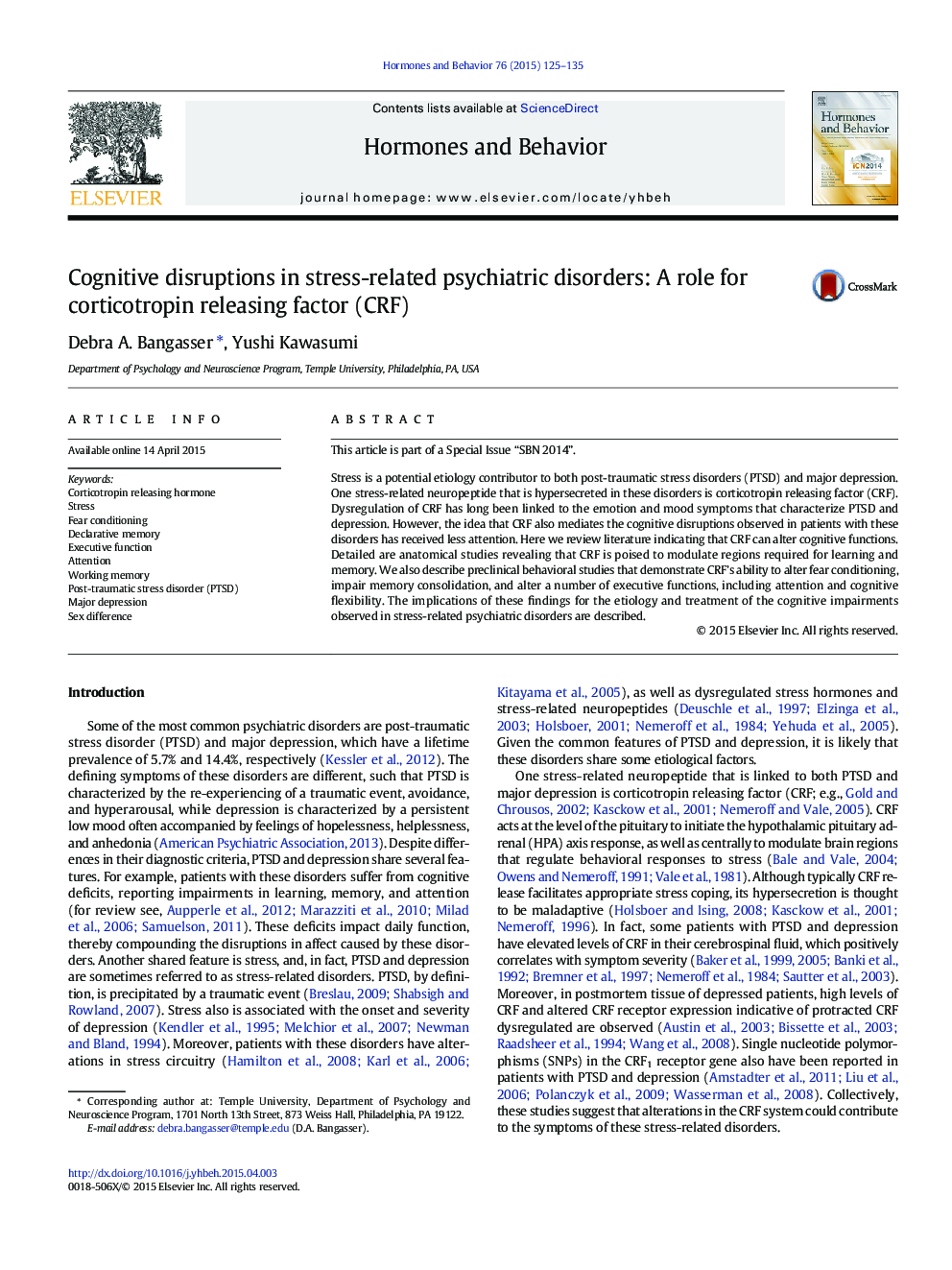| Article ID | Journal | Published Year | Pages | File Type |
|---|---|---|---|---|
| 323515 | Hormones and Behavior | 2015 | 11 Pages |
•Corticotropin releasing factor (CRF) is hypersecreted in PTSD and depression.•Preclinical studies reveal that high levels of CRF disrupt many cognitive processes.•CRF dysregulation could impair cognition in patients with PTSD and depression.
This article is part of a Special Issue “SBN 2014”.Stress is a potential etiology contributor to both post-traumatic stress disorders (PTSD) and major depression. One stress-related neuropeptide that is hypersecreted in these disorders is corticotropin releasing factor (CRF). Dysregulation of CRF has long been linked to the emotion and mood symptoms that characterize PTSD and depression. However, the idea that CRF also mediates the cognitive disruptions observed in patients with these disorders has received less attention. Here we review literature indicating that CRF can alter cognitive functions. Detailed are anatomical studies revealing that CRF is poised to modulate regions required for learning and memory. We also describe preclinical behavioral studies that demonstrate CRF’s ability to alter fear conditioning, impair memory consolidation, and alter a number of executive functions, including attention and cognitive flexibility. The implications of these findings for the etiology and treatment of the cognitive impairments observed in stress-related psychiatric disorders are described.
